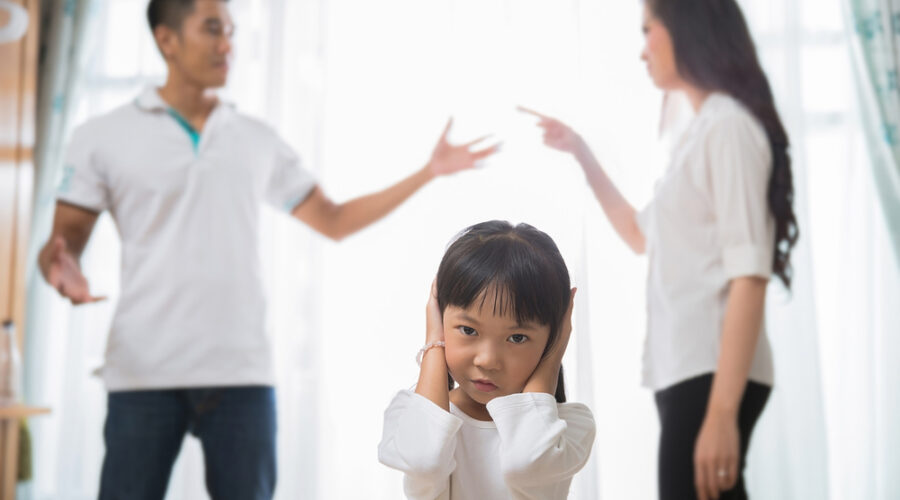
As part of our series on mental health, we have discussed with several mental health professionals the key to assisting children through divorce and the “new normal” that a child will face in divorce.
One of the key factors in helping to ease the pain a child may go through in divorce as expressed by several mental health professionals in Hong Kong is to create an open environment for a child to communicate with their parents without the fear of reprimand or shame.
In a divorce, a child may have a lot of questions about what is to come and the uncertainty can sometimes be more frightening then the reality itself.
Here are some tips on how to ease the burden of divorce upon your child and some of the key questions your child may have throughout the daunting process:
Will A Child Have A Voice In Divorce?: One of the key questions a child may have in the divorce process is whether his/her wishes and desires will be considered in the decision-making process or whether the child will simply have to follow along with what the parents and the courts decide for his/her life. Whilst it is appropriate for a young child to have the parents make the necessary decisions in their best interests, an older child may be allowed to voice their wishes and desires in the Family Court proceedings. In Hong Kong, the Family Courts will appoint a Social Welfare Officer to assist in the decision-making process of the Judge to determine what is in a child’s best interest. This is done through various in-depth interviews with the child and in some cases, by having psychological reports conducted. Generally speaking, it is always an ideal situation if the parents can agree on the best interests of the child rather than having Court-appointed strangers make the decision for them. Thus, this brings in the importance of having healthy co-parenting relationships in order to make compromised and healthy decisions for the children of the family. Many times, having open communication with your child will assist in the decision-making process of the parents because the child’s wishes are respected and taken into consideration.
Parental Disputes Should Not Be Resolved Through A Child: Many times, children are caught in the middle of parental disputes especially when the parents cannot get along and are fighting a legal battle in the Family Court. The worst thing parents can do is drag the child into the litigation. Many times, this is done by the parents discussing the divorce with the child, asking for emotional support from the child about the divorce and bad-mouthing the other parent so as to alienate the child from the other parent. It is important for a child to understand that the divorce is an adult issue to be discussed and resolved between the two parents. It is not for children to become involved in the divorce or be used as pawns in the negotiation process of the divorce. Children should not be seen or used as messengers and thus, any necessary communication should be between the parents and not through the child. Whilst it may be tempting to use a child as a weapon in a divorce, it is important for parents to do their best to refrain from such behaviour and instead find that support from other adults it be solicitors, barristers, friends or other family members. Children are not designed to handle the burdens of a divorce and such trauma could result in disruptive behaviours, anxiety and other psychological issues.
Healthy Co-Parenting Means Healthy Children: Having a healthy co-parenting relationship provides a child with an example of how broken families can still function in a respectful, friendly and loving way. Healthy co-parenting means respectful language is used when communicating with the other parent, refusing to bad-mouth the other parent when disappointed by the other parent’s actions and keeping adult conversations between the adults. Healthy co-parenting also means respecting the other person’s time and encouraging a relationship between the child and the other parent. In a divorce, one of the key concerns that a child may have is whether they will be able to spend time with the other parent (the non-custodial parent). In Hong Kong, one parent is typically provided with “care and control” and this parent is usually the primary caregiver on a day-to-day basis. The other parent is granted “access” and is considered by the Family Court, the “non-custodial parent.” When the non-custodial parent is granted “access” to the child, the primary parent should facilitate access so that the child can spend time with the other parent as agreed or by the Court order. Making access difficult not only creates tension between the parents but it also places an overwhelming burden on the child who then believes he/she must pick sides between the parents.
Whilst divorce is a difficult process for adults, the children also suffer greatly and they also must process the change. Children need their parents to help them through the process and cannot rely on themselves to get through the ordeal. Thus, if you need assistance through the divorce, speak to friends, family and professionals to help you navigate the challenges. Speaking with your solicitor will also be helpful as your solicitor has seen many families through a divorce and can provide you with useful tips on how to navigate the challenges that you face and the challenges that your children face.










